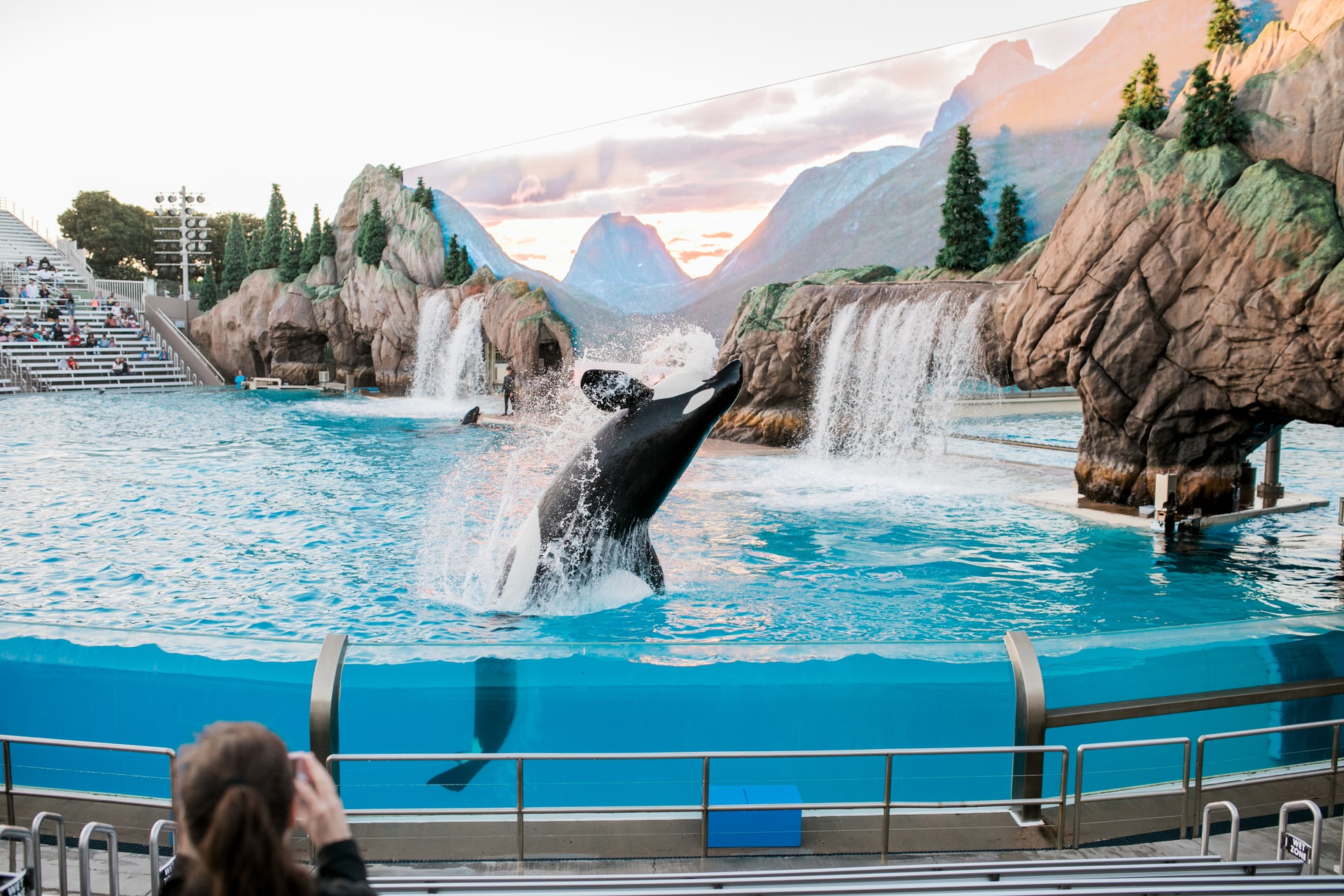Members of a Native American tribe are going to sue Miami Seaquarium for keeping a killer whale captive for half a century. The whale’s name is Lolita. She is the last survivor of seven killer whales captured in the largest orca capture in history, which took place at the Puget Sound off Washington State in late 1970. The aquarium bought the whale 49 years ago for a reported $20,000.
We recently reported on the cruel and inhumane treatment that these beautiful sea creatures endure at Seaworld. Conditions at Miami Seaquarium are no better. Lolita lives and performs tricks for audiences in what is said to be the smallest whale tank in the US.
RELATED STORY:
Two members of the Lummi tribe of indigenous Americans are planning legal action against the aquarium. The tribe was the first to inhabit the area off of the northwest US coast. They say they have a deep “kinship bond” and spiritual connection with their “relatives,” the killer whales that reside there. How could they not? The tribe says:
…that as well as “abducting” her without permission, the aquarium has ever since been keeping the veteran orca in a tank that legally is too small – at 80ft x 35ft and 20ft deep.1
Squil-le-he-le (Raynell Morris), a Lummi elder added:
“She is my relative, our word for orca is qwe ‘lhol ‘mechen, which means our relation under the waves. She’s like a daughter to me,” “It hurts my heart that she’s been kept away from us and from her pod for so long. She needs to be back home, with family.”2
RELATED STORY:
Imagine this – beloved Lolita cannot dive because her tank is only as deep as she is long.
The federal animal and plant health inspection agency’s regulations state that the primary enclosure for a killer whale must be at least 48 feet wide.
RELATED STORY:
Those against Lolita’s captivity want her to be released into a protected cove sea pen that would be designed by marine scientists and built just for her. After performing tricks twice daily for 48 years, this beautiful creature would be able to finally” retire.” They said she could be reunited with her family, adding:
“(she) would have the room and companionship she so desperately deserves.“1
As you might imagine, Miami Seaquarium’s experts believe moving Lolita would be a mistake. The ownersof the aquarium, who have profited HUGELY off of Lolita (as well as the other captive see animals), said in June:
“For almost five decades we have provided for and cared for Lolita, and we will not allow her life to be treated as an experiment. We will not jeopardize her health by considering any move from her home here in Miami.”1
RELATED STORY:
Seattle’s KOMO News spoke with Kenneth Balcomb, the founder of the Center for Whale Research, and he says despite Lolita being around 50 years old, bringing her back to the northwest would NOT be harmful for her health. He added:
“If she were sold to another park, they wouldn’t hesitate to ship her.”2
Both KOMO News and The Independent recently reached out to the aquarium for an additional comment, but neither has heard back.
Campaigners are passionately calling for Lolita to be freed. They staged protests this past weekend in London, South Africa, Spain, Australia and cities across the US.
RELATED STORY:
Hundreds of Lummis planned to gather in Bellingham, Washington with drums, canoes and a totem pole as they launched their $125,000 battle. The members had hoped that Seaquarium would do the right thing and meet them to negotiate Lolita’s release, but that didn’t happen. Those taking legal action said in a statement:
“We have completed the necessary research and will suing for her return under the auspices of the Native American Graves and Repatriation Act.”2
The tribe members sacred vow to Lolita stands firm. They added:
“she has been held in unspeakably cruel conditions and treated as a profit center” by her owners. “She is a sacred being, not a commodity, and is a relative of ours. We know from our own history how it feels to have—or to be—a child stolen away from family.“1
We hope and pray that Lolita gets to experience the feeling of being back in the ocean again during her lifetime.












